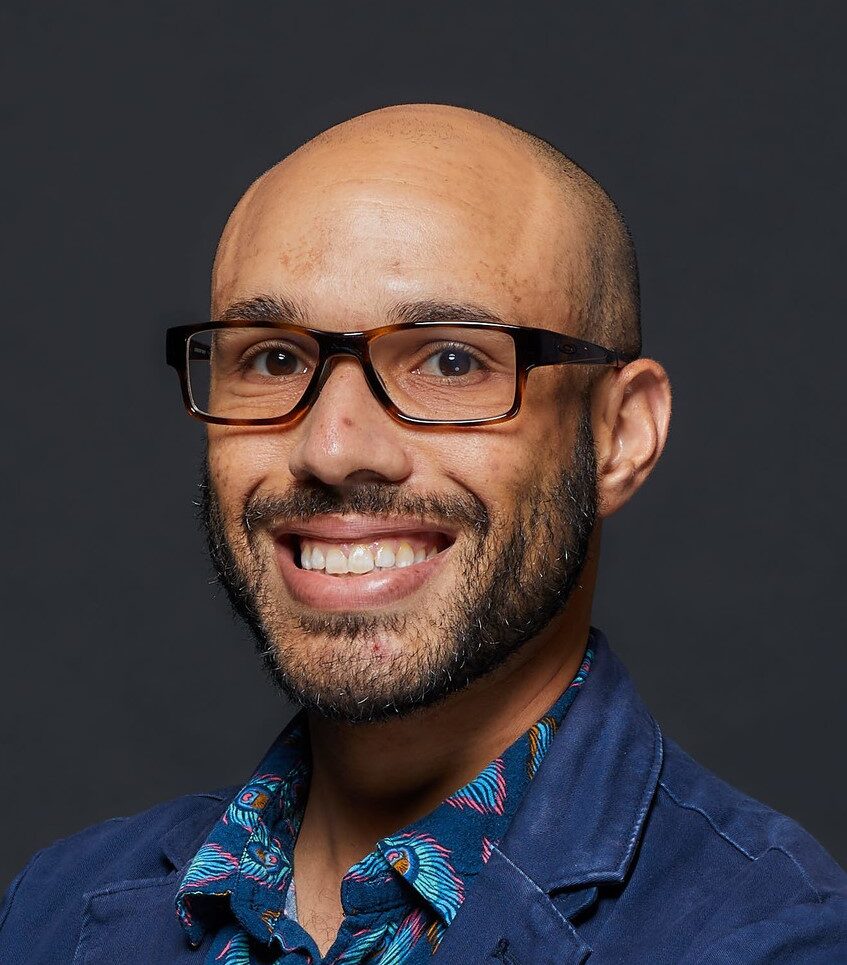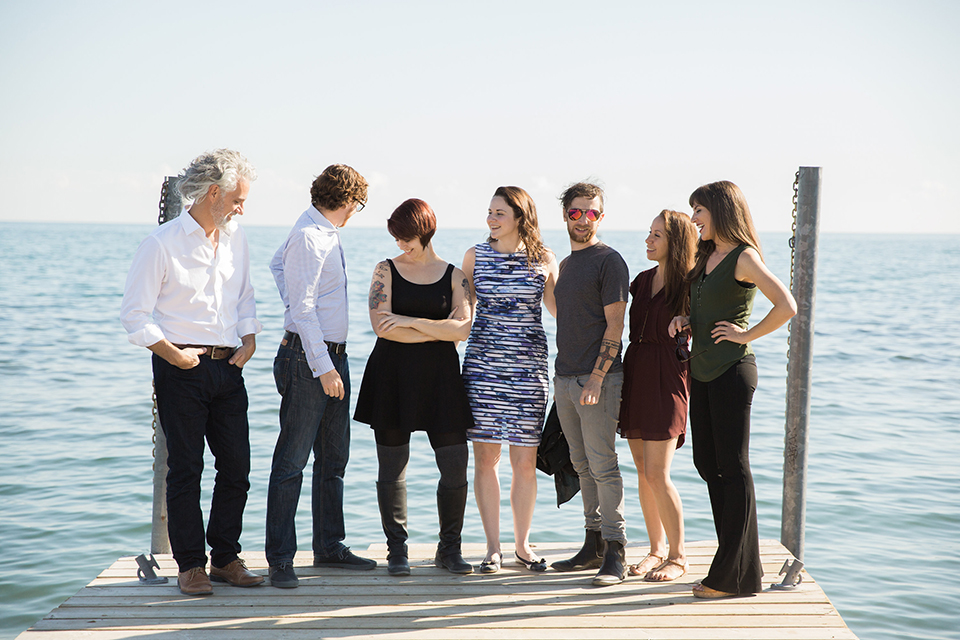Every so often we invite someone we trust and respect to contribute to the Realized Worth blog. Jerome Tennille fits that description. Jerome is the manager of Social Impact & Volunteerism for Marriott International. He also serves as a co-chair for the Impact Council of Baltimore and Maryland. I invite you to consider Jerome’s point of view of the harm we can do through volunteering when we treat it as a seasonal and episodic activity thereby overwhelming community organizations without addressing real and long-standing issues over the long term. Alternatively, as Jerome observes, there is a significant downside to dismissing civic engagement as ’not volunteering’ merely because it doesn’t fit established definitions.
Jerome will tell you exactly what he thinks and why.
And that’s why we’re thrilled to feature him here.
If you want to hear more from Jerome Tennille, join us on the Listen Up! Show on Wednesday, February 10th, to discuss the link between DEI and Corporate Citizenship. Register here!
The Misunderstood Social Construct That “Does Good”
MLK day of service has reminded me that the act of volunteering is simply a social construct as the expectations to volunteer grows louder within many social spheres. And while volunteering for the community is often acknowledged or lauded as doing good, I can’t help to wonder whether we sometimes lose sight of what we should be focused on. Here’s what I mean. It’s on these days designated as days of service (or holidays celebrating a historically significant life, a person’s legacy or religious tradition) we expect there be something to volunteer for. And of course, there are many critical issues to solve. But we must proceed with caution. Why? Because sometimes our desire to give can ignore the true needs of society and the environment. Our individual or collective desire to do something sometimes ignores the critical issues in the community, and it’s on these days of service we can (and often do) push non-profits beyond their ability to serve.
Sure, individually it may not be a big deal, however, collectively it adds up. Remember, on these days of service millions of people line up to give back.
Fixing this isn’t easy, and I suspect many don’t want to fix this. Some may not believe this to be a problem to begin with. I’ll even go out on a limb and suggest this may be in part because to them volunteering is by default virtuous… morally good… and very much in line with their values culturally, religiously and socially. But we must remember volunteering is a social construct. It’s not universally valued; it’s taught. And while giving back to others is a good thing, it can unintentionally cause harm to others, silently undermine the very issues we’re seeking to solve, perpetuate injustices and force cultural norms onto others. It can be fixed though. But first we must decouple community service from holidays and societally prescribed dates in history, then position volunteering as something to do based on need year-round and think about our place in solving an issue and whether that conflicts with our (or others) expectations.
The road to hell is lined with good intentions.
When I do a search on Google on the subject of volunteering after the holidays I surprisingly (but not that surprising) find more articles about how to volunteer during Thanksgiving and Christmas. But every now and then I’ll come across a much more intelligently written and educated piece on why volunteers are needed more so after the holiday season.
Contrary to our societal behaviors, non-profits usually need volunteers during every other period of the year. And for good reason. Their services don’t start and end at our mere convenience. They exist year-round. To me it’s simple, but for many it’s not. We’re especially wired as a western nation to give back during the “season of giving” and significant dates of the year. For those of us in America they also include days like MLK Day of Service and September 11th National Day of Service and Remembrance (also known as Patriot Day).
That’s not to say non-profit organizations don’t need volunteers during the holiday and other significant dates commemorating service, but they certainly don’t need the volume they often have to turn away. You see, the need for volunteers is a double-edged sword. During these periods of time the number of people inquiring to serve as volunteers reach such high volumes that it can actually just overwhelm the organization’s staff, namely the volunteer engagement professional (some of these people volunteers themselves for smaller organizations).
The other part of the equation is this. Many non-profits simply don’t have enough work to go around during a single day for as many people who want to volunteer. So, for example, non-profits that may need 15 volunteers for each shift serving three meals a day (45 volunteer slots total) may experience a 400% increase in demand (inquiries from would-be volunteers). When you do the math, for a non-profit of this type that can satisfactorily fill their needs they may have to turn around close to 135 other would-be volunteers.
In the instance for those in the American food bank system such as food pantries, meal delivery services and homeless shelters, they may serve three meals a day for 364 days a year. It’s often many of these types of non-profits that experience their highest number of engagements through the holidays for the very reasons mentioned. But what after that? Most people don’t think about this, but there’s generally a slump after the holiday season “party” is over. Many of these same organizations which experienced such a high volume of interest then struggle to find willing volunteers come February. That drought may last until May or June until school is on recess for the summer, opening more free would-be volunteers seeking opportunities to spend their time doing good.
This is the story for hundreds of thousands of non-profits, even those not within the American food bank system. Who’s at fault? Well, often the individual volunteers and the large entities that promote volunteering who prescribe to this social construct.
Perpetuating the harm we’re working to solve.
In recent months (since the death of George Floyd in 2020) I’ve been focused on training and educating other volunteer engagement professionals about the consequences of creating unequitable mechanisms that engage volunteers. I happen to believe that while Diversity, Equity and Inclusion (DEI) has been a topic within the Human Resource (HR) circles for years, it never really creeped up as a topic within the realm of volunteer engagement. Truthfully, I’ve always found that quite curious. Why you ask? Because In the nearly ten years as a social impact professional whose job it is to engage volunteers in both the non-profit sector and in Corporate Social Responsibility (CSR) I tend to believe I’ve engaged more human capital than my HR counterparts. Think about it for a second. While working for a national non-profit based in Washington DC, it was my job to engage over 9,000 volunteers through communication, social media, video, public speaking engagements and in-person at events annually. At that same organization, our HR Director was only truly responsible for the approximately 100 paid staff employed by this non-profit.
Do the math. I reached more people in a week than our HR Director was responsible for through the course of a full year. The difference is that those I engaged weren’t on payroll.
So, to me, DEI has always been important for social impact professionals like myself. Now, of course it’s more front and center and rightfully so. There’s no time better than the present when others are willing to have this conversation. I’ve always been told to take advantage of a good crisis, and right now we have a racial crisis in America (and globally if I’m being honest).
If we acknowledge the act of volunteering as a social construct, we also must address the unintended harm that these mechanisms are doing in the communities we serve and perhaps those we’re engaging (or seeking to engage in service). There have been many good intentions that have caused great harm, marginalized many while also continuing the cycle. As western nations continue becoming more and more diverse in ethnic, racial, cultural, religious and societal ideals, we must ask if our western approach and understanding of volunteerism (much of which is rooted in 1700’s Anglo culture and belief systems) only pushes a value system not universally understood or embraced by all communities.
We also must ask harder questions about the inclusivity of these very programs. If we’re to fully live and embrace the idea of becoming multi-cultural as a society, we must grapple with (and accept) the fact that not all cultures and communities volunteer or believe it’s virtuous. We must also acknowledge that (if not done thoughtfully) our very actions could simply be creating more exclusive mechanisms not accessible by those with less social, economic and human capital. To me, this is a problem considering I firmly believe volunteering and civic duty is one of the strongest forms of exercising our democracy as people. The issue here is that it’s simply not accessible by those who are the most harmed in society.
Our collective and fundamental misunderstanding of volunteering is a part of the issue.
As we were closing out 2020, I came across a Twitter post (with a link to a news article) which suggested Australian’s are less connected to their community and that’s to blame for the “decline” of volunteering nationally. I’ve also seen similar posts and news headlines suggesting similar trends over the past decade here in the United States and across the pond in the United Kingdom. I feel this idea too often becomes a widely discussed subject about how people are becoming less human or are possibly losing their sense of morality, as if volunteering is inherently virtuous.
The suggestion or claim that volunteering is simply declining is a lazy argument. By suggesting that volunteering is declining and that we must volunteer more reinforces that assumption of the act of volunteering being universally valued globally. It ignores the fact that society is more global and multi-cultural than ever before. It ignores the fact that approximately 70% of all the world’s volunteering is done informally for friends and family, not through formalized institutions. It ignores the reality of communities participating in acts that many don’t consider as volunteering, like activism, peaceful protesting and marching.
In Episode 3 of Optimy’s Podcast called “CSR Connect”, Andrea Gamson, a Small Business Consultant and CEO on the topic of activism and protesting as volunteering is “that’s a controversial one, because you’ve got to ask yourself what is the output and the outcome of that volunteer experience, because volunteering is an impact creation, right? Because its impact needs to be monitored and evaluated. So, how does a firm who’s offering out volunteering time to its employees measure the impact that’s created from that type of experience? Essentially, you’re saying ‘can I be an activist and can I go and support a piece of activism that I believe in as part of my volunteering time’”. Andrea goes on to say “if I were a director in a firm and someone came to me asking if they could go protesting as part of their volunteering time, it is different from what traditional volunteering is, so I think it does raise some very important questions” but ends with “the initial reaction by many I imagine to me is that is not volunteering. Why do you think it’s not volunteering? You’ve got to ask yourself what are the outputs and outcomes of that experience and can you measure them”.
I’ll also share, in this podcast she admits not having spent time even thinking about this. What? Really? This is your job and you’ve not even spent time thinking through this?
I’m sorry, I not only see things differently, but also believe the not thinking through this is a part of the problem. I simply can’t accept that activism, marching and peaceful protesting doesn’t qualify as volunteering simply because there’s no formal mechanism for quantifying or qualifying the outputs and outcomes. While not an equal comparison, that’s as wild of a comment as me claiming trees don’t fall in the forest because I don’t see or hear it happening with my own eyes and ears.
I will also remind folks, that here in America companies like Patagonia, ALDO and &pizza have all given “Social Justice Benefits” and “Protest PTO” to their employees for various reasons related to both the environment and racial justice (respectively) over the years, some of which most recently taking place through this summer after the death of George Floyd. While not “traditional” in terms of volunteerism, companies do it. You can read about some of that in a previous Responsible AF blog post.
But this gets me to yet another issue, that perhaps we assess volunteering is on the decline simply because it’s underreported or goes unacknowledged. Let’s face it, many people don’t report their actions of volunteering, they don’t brag about it or seek awards. And coupled with this is the lack of collection even by formal institutions. But for those engaged in informal volunteerism, I imagine they too don’t think of their actions as volunteering.
Last but not least, as mentioned before, volunteering requires a fair degree of privilege. Members or society with less economic, social and human capital have far less access to opportunities to volunteer. The act of volunteering isn’t inherently egalitarian. With greater disparities in society, I would assess that much of what we consider volunteering just isn’t available to those who don’t volunteer. How can we expect more people to volunteer if it’s not accessible?
So, to me, those who simply claim it’s declining and that somehow that’s inherently “bad” must fundamentally misunderstand the act of volunteering as a social construct. One thing I do know is this… volunteering is not inherently “good”, it’s not universally valued, it’s underreported, often done outside the bounds of formal organizations and sometimes even ignores the true needs of society. When dissected it becomes very complex and nuanced. As a result, most people don’t take the time to acknowledge these factors. They just claim it’s declining, say “that’s bad” and that people must do more and simply stop there. That’s lazy.
The road ahead can be more positive.
If you’ve read this far then you may be a bit disturbed about what I wrote, you may strongly disagree or may be slightly angry… the selfish part of me hopes you agree with some of what I wrote.
But, because you’ve read this far, I’ll presume it’s the latter. Something in you at least slightly agrees that volunteering as an act is fundamentally misunderstood (or just understood through a narrow lens) by the greater part of society and even many volunteer engagement professionals, that as a social construct it can perpetuate harm when executed poorly, it can sometimes force cultural and societal values on different communities and isn’t universally valued globally. If you believe that then there’s hope that we can rethink our strategies and change our approach. To me it’s vital we do so, because too many in our profession are simply going through the motions as bots, performing our jobs in the way others in society expect, even when we feel or know we’re not making progress.
Yes, it will require us making the act of volunteering to become multi-cultural in the way we understand it, seek to engage would-be volunteers and value its contributions to society.
Yes, it will require professionals who engage volunteers for a living in both the non-profit sector and CSR to question and scrutinize their own programs.
Yes, it will even take social impact and volunteer engagement professionals in all sectors to reeducate themselves, seek constant professional development and educating their leadership. It will even take the persistent education of others… our leadership and peers who manage large institutes that may be pushing the expectations that perpetuate harmful cycles.
Yes, this means we’ll have to restructure our communication, the language used, resources and assets we create and even push back when we feel the days of service and holiday season of given isn’t a good fit.
And finally, this means you’ll probably need to grow a stronger backbone, become better versed in our field and start challenging the status quo. Because that’s where we’re currently at, the status quo, and it’s not working. It’s not working for us, the diverse volunteers we want to engage but aren’t, and the communities we’re seeking to solve critical issues with.
Not yet satisfied? In my next blog post we’ll address how we can all do this, where we can start. But, until then stay safe, continue wearing a damn mask and just be Responsible AF.
If you want to hear more from Jerome Tennille, join us on the Listen Up! Show on Wednesday, February 10th, to discuss the link between DEI and Corporate Citizenship. Register here!

Jerome Tennille is the Manager of Social Impact & Volunteerism for Marriott International. Jerome is also an independent consultant and advisor in the subject matter of Sustainability and Social Impact. Prior to that Jerome held the position of Senior Manager of Impact Analysis and Assessment for Tragedy Assistance Program for Survivors (TAPS), a national organization that offers help, hope, and healing to all those grieving the death of a loved one serving in America’s armed forces.
Jerome also served on the board of directors of Peace Through Action USA for four years and also serves on the PsychArmor Institute Advisory Committee for the School of Volunteers & Nonprofits. Jerome holds a Bachelor of Applied Science in operations management and a Master of Sustainability Leadership from Arizona State University. Jerome is designated as Certified in Volunteer Administration and is also a veteran of the U.S. Navy.






